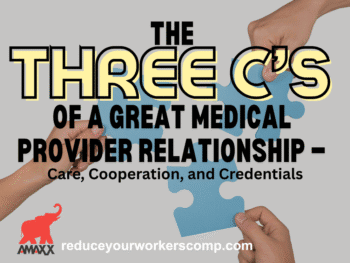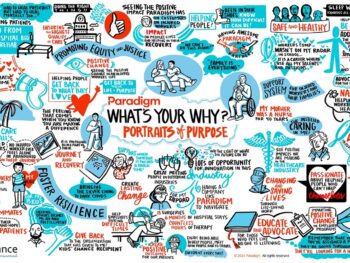
An Effective Nurse Case Manager Is Important Adjuster Tool
Whatever the case may be, an effective nurse case manager is (Or should be) one of the claim adjuster’s most important tools. Not only are they eyes and ears on the ground, but they should be confronting the treating doctor with the questions the adjusters need to move the claim forward, address compensability, or reach MMI.
It always surprises me when a claims adjuster doesn’t really know who their nurse case manager is. What is their experience? How long have they been doing case management? Have they worked for any other vendors? Did they work at a carrier as a telephonic case manager? All of these questions have importance.
Click Link to Access Free PDF Download
“The 6-Step Process To Determine Workers’ Comp Injury Causation”
The relationship between adjuster and nurse case manager is very important, so I did some additional research on this topic. Does an adjuster really care about which nurse is on the file? After all, nurse case management is an important role and has a lot of influence on the file. So, what is the dynamic?
Nurse Case Manager Story From A Seasoned Adjuster In The Trenches
To answer this, I asked my adjuster friend of mine named Toby. Toby is a field claims adjuster and travels to his accounts and handles files on his own. He stated that he has a nurse case manager specific for each account. Not only does he bring the nurse in to tour the facility regularly, but he also creates a good working relationship between the nurse and the insured contact. The three of them create their own triage group. By keeping one specific nurse for each account, the nurse becomes a huge asset for the file. This nurse knows the employer’s floor plan and workstations, knows the job duties, who to email with questions about repetitive motion, light duty assignments, etc. This makes life easier for Toby as an adjuster because he allows the nurse to run the medical portion of the file.
He has developed a significant amount of trust in this relationship. He knows the nurse has an ER department background, and he said when they first met, he explained his role as a claims adjuster and took the time to explain what his needs are, what he expects, why he expects it, and why it is important. He taught the nurse about some of the legal challenges and medical challenges he faces in his role and why the case nurse is such a crucial benefit to him, especially being out in the field.
Toby started him off with some files, and monitored if the nurse delivered on what he said he could do. Many years later, he trusts this nurse with some of his most important accounts, and the outcome is mutually beneficial.
Be Proactive About Developing Your Own Relationships
The question becomes how you go about developing your own relationships. The answer Toby suggested is trial and error. He stated that when he was developing relationships in areas outside of his trusted nurse’s geographic region, many nurses and their marketing vendors would promise the moon, but then when push came to shove, their weaknesses would surface. Some nurses were not aggressive enough. Some talked a good game, but they would roll over when it came time to do the dirty work. Over the years, he has seen some good nurses come and go, but he is always trying to meet new contacts to strengthen his network of reliable, dependable, and effective nurse case managers. To do this takes time, and each relationship has always started over lunch.
It is basically an interview process. Those that have delivered for Toby have become a part his team of vendors he uses regularly on files. As the months and files go by, the working relationships grow stronger, better, more efficient, and essentially seamless. It becomes a team effort, with mutual goals and a strong knowledge of what to expect from each other.
How Well Do You Know Your Nurse Case Manager?
It is simply not enough for an adjuster to blindly trust very important dollars in the hands of a nurse they do not know. The nurse represents the adjuster, carrier, and employer. Cases spiral out of control all of the time, and the adjuster has a duty to either prevent that from happening or to control the vortex as quickly and effectively as possible.
So, how well do you know the nurse case manager you are putting on your file?

Contact: mstack@reduceyourworkerscomp.com.
Workers’ Comp Roundup Blog: http://blog.reduceyourworkerscomp.com/
©2023 Amaxx LLC. All rights reserved under International Copyright Law.
Do not use this information without independent verification. All state laws vary. You should consult with your insurance broker, attorney, or qualified professional.




























